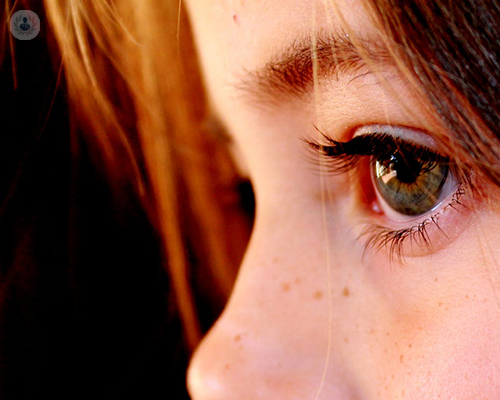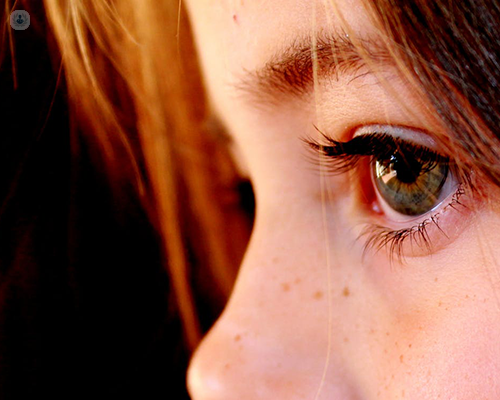
Red eyes: a guide to conjunctivitis
Conjunctivitis is a very common eye condition that affects roughly 1 out of every 100 people who go to their GP in the UK. Sometimes called pink eye, conjunctivitis occurs when the thin and clear layer of tissue covering the eye, called the conjunctiva, becomes inflamed and causes itchiness and redness.

What are the symptoms?
Conjunctivitis symptoms are noticeable and relatively easy to diagnose. The main two symptoms to watch out for are:
- Red eye – caused by the swelling of tiny blood vessels in the conjunctiva.
- Mucus-like discharge – tiny glands in the conjunctiva that produce tears and cells that produce mucus become overactive due to the swelling of the conjunctiva.
Usually, conjunctivitis only affects one eye at the beginning, but as it is highly infectious, it spreads to the other eye in a short space of time. Other conjunctivitis symptoms include sticky liquid on the eyelashes, and feeling like your eyes are burning. In most cases of conjunctivitis there is no need to worry, but occasionally it may be a sign of another underlying health condition.
What causes conjunctivitis?
The three main causes of inflammation of the conjunctiva are:
- Infection, caused by an STI, bacteria, or virus. This type of conjunctivitis is known as infective conjunctivitis.
- Allergy (this is known as allergic conjunctivitis)
- Irritation to the conjunctiva, caused by a speck of dust or an eyelash, among other things
Conjunctivitis spreads easily. If you have been in contact with somebody who has it, the chances of you developing conjunctivitis increase significantly.
Prevention and treatment of conjunctivitis
Maintaining hygiene by washing your hands properly, especially if you’ve been in contact with somebody who has pink eye, can help prevent you getting it as well. It is also a good idea to avoid using the same pillow or towel as an infected person.
Conjunctivitis treatment depends on the cause. In many cases, conjunctivitis clears up in a couple of weeks and does not require treatment. To find out if you need treatment, and what the best conjunctivitis treatment is for you, get in touch with a specialist.

